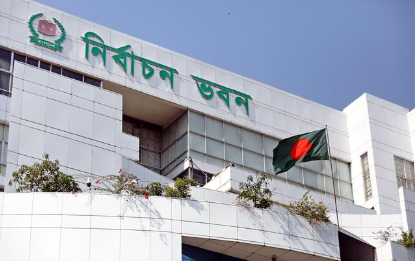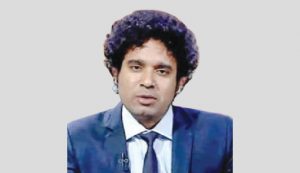National election: Balancing hope and fear
- Update Time : Saturday, December 28, 2024

–Md Asifur Rahman–
The timeline for Bangladesh’s upcoming national election remains uncertain despite mounting public anticipation. In his Victory Day speech, Professor Dr Muhammad Yunus, the chief adviser of the interim government, hinted that the next general elections may be held between late 2025 and early 2026. Dr Yunus suggested that a minimal reform would allow holding election by late 2025. However, a more comprehensive reform would take some more time: an additional six months. This uncertainty has been exacerbated by the ongoing questions regarding the duration of the interim government’s tenure, with the election date remaining the central issue. Despite no definitive timeframe from Dr Yunus, some advisers have indicated different times for the elections.
BNP has voiced concerns about potential delays and demanded a clear roadmap for the elections. They were unsatisfied with the speech delivered by Dr Yunus. On 18 December, BNP Standing Committee member Salauddin Ahmed expressed that the reforms should not take more than four to five months to implement.
The uncertainty has also disappointed several political parties, including those allied with the BNP and leftist political parties like Communist Party of Bangladesh (CPB). CPB’s General Secretary Ruhin Hossain Prince argued that elections should be held by mid-2025 and that having a clear roadmap would ensure better planning and prevent delays.
Some political parties also fear that any delays may be strategically motivated, such as the formation of new political entities like the National Citizen Committee. This group, founded by student leaders of recent mass movements, insists that no election should be held until the leaders of recently-ousted fascist regime and their cohorts are prosecuted. Political leaders believe that delays would grant these groups more time to be organised.
Even within the BNP’s allied Democracy Platform, there are calls for an alternative to the current election plan. Advocate Hasnat Kaiyum, a leader in the platform, strongly criticised the Chief Advisor’s election timeline on Facebook, advocating for a constitutional assembly election after necessary reforms—one that differs fundamentally from the parliamentary election. Meanwhile, Jamaat-e-Islami has chosen to adopt a neutral stance. In response to questions about the type of reforms proposed by the chief advisor, Jamaat’s Secretary General Mia Golam Parwar said that the nation would tolerate some delay if it ensured a fair and transparent election.
Recent tension between the Anti-Discrimination Student Movement, Islami Chhatra Shibir, and the Jatiyatabadi Chhatra Dal (JCD) may also validate the BNP’s concerns. On several occasions, BNP obstructed the National Citizens’ Committee from organising meetings and rallies. In contrast, the leaders of the Citizens’ Committee and Anti-Discrimination Student Movement accused BNP of attempting to “rehabilitate the Awami League”.
Although invited to events organised by anti-discrimination groups and Chhatra Shibir, Chhatra Dal leaders have not participated. Similarly, Chhatra Dal leaders held discussions with 28 organisations, including left-wing student groups, but did not invite leaders from Chhatra Shibir or the Anti-Discrimination Student Movement. These actions and reactions suggest that there developed a fracture in relations among the groups who were united a few months ago to lead the Mass Uprising.
The growing tensions raise valid concerns: the more the election is delayed, the more bitterness and division may take root among the parties and organisations involved, potentially plunging the country into prolonged and undesirable chaos. In this volatile situation, how will the fragile economy fare well? Can it withstand such a crisis? Furthermore, law enforcement agencies, already weakened, may struggle to maintain order during these turbulent times.
At this juncture, creating an environment conducive to a free, fair and peaceful election is crucial, but so is ensuring that any future return to authoritarian rule is prevented. However, achieving this goal is not solely in the hands of the interim government. The timing and extent of necessary reforms should ideally be determined through consensus among all political forces, including student leaders, as witnessed in the July Uprising.
Dr Yunus has proposed the establishment of a “National Consensus Formation Commission” by 31 December, which will include the heads of six reform commissions. This commission’s recommendations will guide the government in finalising the reforms needed to hold the election. If successful, this initiative could play a key role in fostering agreement among political parties regarding election-related matters. However, if there is any delay in this process, it could raise doubts about the government’s sincerity, which could have serious consequences.
The establishment of a sustainable democracy is now the country’s most pressing concern. A transparent, free, inclusive, and credible election is essential to this goal. There is no alternative but to reach a consensus on this issue.
(The writer is the news editor at News24)


















